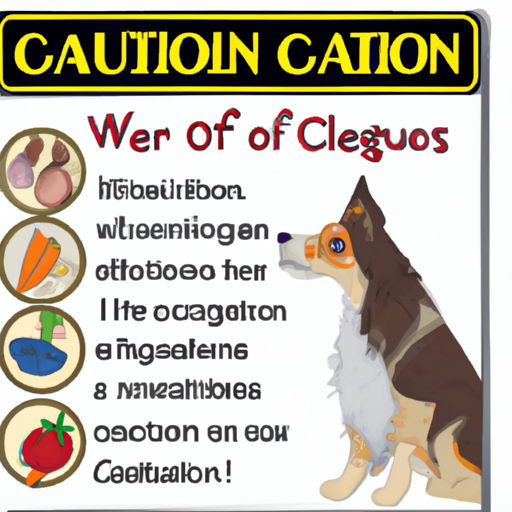Introduction
As a caregiver, you’re always on the lookout for what’s good and bad for your loved ones, right? You’re the same with your furry friend too, constantly checking and double-checking what’s on their plate. You’re aware that not all human foods are safe for your dog to consume, but what about vegetables? In this article, we will delve into this question and provide you with a comprehensive guide on which vegetables are harmful to your four-legged friend.
Harmful Veggies: The Dark Side of the Green
You might be surprised to learn that there are quite a few vegetables that are not recommended for dogs.
-
Onions and Garlic: These common kitchen staples contain compounds that can be toxic to dogs, damaging their red blood cells and leading to anemia. This includes all forms of these veggies, whether raw, cooked, or powdered.
-
Tomatoes: While the ripe fruit is generally safe in small amounts, the green parts of the tomato plant contain solanine, a toxin that can cause nervous system damage in dogs.
-
Mushrooms: While not technically a vegetable, they’re worth mentioning. Store-bought types are generally safe, but wild mushrooms can be deadly.
-
Avocado: Although a fruit, it’s worth including. Avocados contain a substance called persin, which can cause vomiting and diarrhea in dogs.
-
Rhubarb: This vegetable contains oxalic acid, which can harm a dog’s nervous system and kidneys.
Remember, these vegetables are harmful to dogs in any form, whether raw, cooked, or included in processed foods.
Safe Veggies: A Green Light for the Greens
Let’s not paint all veggies with the same brush. There are plenty of vegetables that are not only safe for dogs but also provide beneficial nutrients.
-
Carrots: These are a great source of vitamins and fiber and can also help clean your dog’s teeth!
-
Peas: These little green balls are packed with vitamins and minerals.
-
Green beans: They’re low in calories and high in fiber, making them a great choice for overweight dogs.
-
Sweet potatoes: These are rich in vitamins and fiber.
-
Spinach: In small quantities, spinach can be a good source of vitamins for dogs.
Remember, even safe vegetables should be given in moderation and ideally should be cooked to make them easier for your dog to digest.
So, How to Feed Veggies?
Knowing which veggies are harmful and which are safe is only half the battle. The other half is knowing how to prepare them. Here’s a simple table to guide you:
| Vegetables | Preparation |
|---|---|
| Carrots | Steam or boil |
| Peas | Cooked, no seasoning |
| Green beans | Cooked, no seasoning |
| Sweet potatoes | Cooked and mashed |
| Spinach | Steamed or boiled in small quantities |
FAQ
1. Can dogs eat broccoli?
Yes, but in moderation due to the isothiocyanates it contains which can cause gastric irritation in dogs.
2. Are cucumbers safe for dogs?
Yes, cucumbers are safe and can be a refreshing, hydrating snack for dogs.
3. Can my dog eat bell peppers?
Yes, bell peppers are safe for dogs. However, they should be given in moderation and should be deseeded and cooked.
4. What about corn?
Yes, dogs can eat corn, but it should be removed from the cob as the cob can be a choking hazard.
5. Can dogs eat lettuce?
Yes, lettuce is safe for dogs but offers little nutritional value.
In conclusion, while vegetables can provide a variety of health benefits for your canine companion, it’s vital to know which ones are safe and how to prepare them. Always consult your vet if you have any concerns or questions about your dog’s diet.



